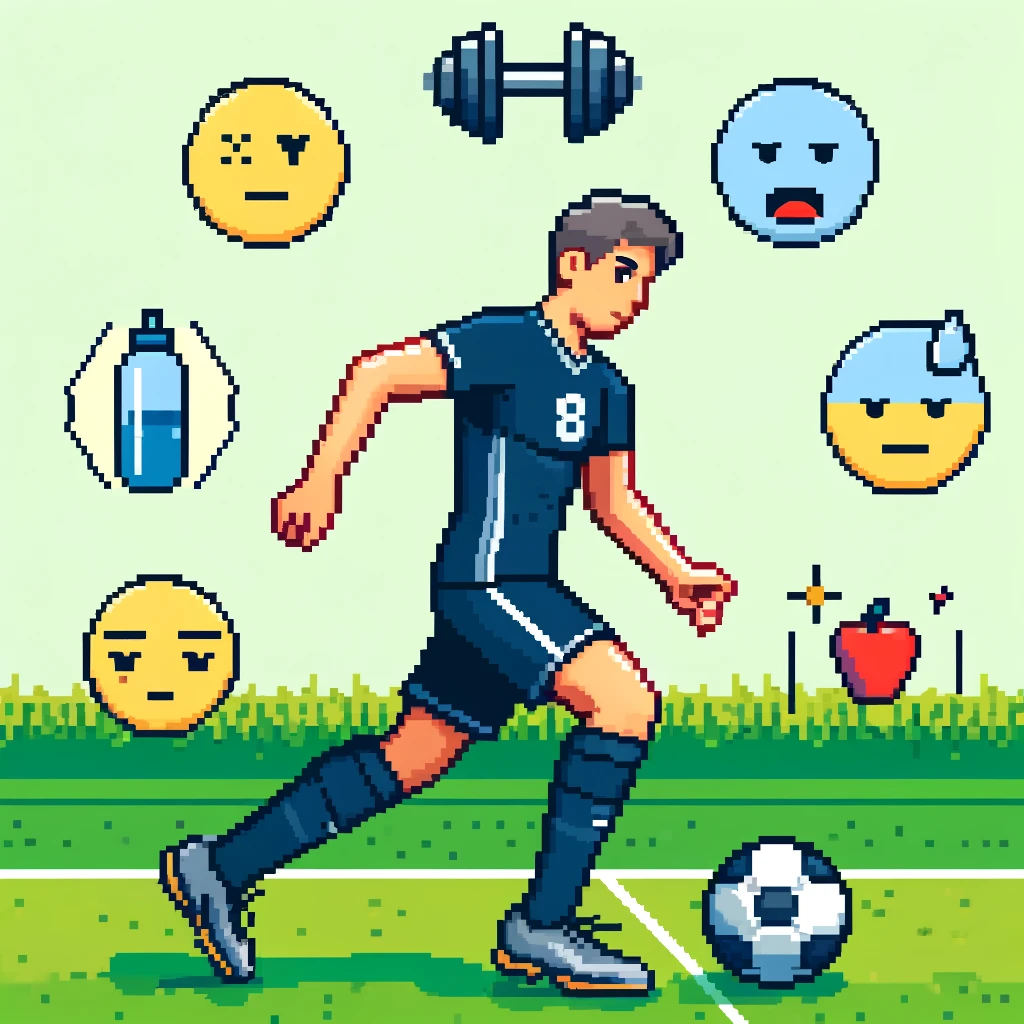
How Science Can Enhance Short-Passing Skills
A new systematic review, utilizing the Loughborough Soccer Passing Test (LSPT), has provided a deep dive into how various factors can improve or impede short-passing abilities. This comprehensive analysis is a game-changer for coaches and players aiming to refine their game strategies and enhance player development.
Understanding the Science of Short Passing
Short passing is crucial for controlling the game’s pace and setting up offensive plays. Most goals in soccer are preceded by quick, precise short passes that dismantle the opposition’s defense. However, traditional methods of assessing short-passing skills in a controlled environment do not fully capture the dynamic nature of an actual match.
The LSPT offers a more realistic evaluation, requiring players to execute passes under time pressure, with cognitive challenges similar to match conditions. This test measures the time taken to complete passes, with penalties for errors, providing a clear correlation between quicker times and better short-passing ability. First, let’s get to know what the LSPT entails.
The Loughborough Soccer Passing Test (LSPT)
The Loughborough Soccer Passing Test (LSPT) is a specialized assessment designed to evaluate a soccer player’s short-passing ability under conditions that simulate the actual dynamics of a game. Unlike traditional methods that might assess passing in static or overly simplified settings, the LSPT incorporates several elements to create a more realistic and challenging environment. Here’s a detailed breakdown of what the LSPT entails:
Design and Setup
The LSPT typically involves a playing area that might resemble a small portion of a soccer field. This area is surrounded by a rectangular arrangement of benches or barriers, which serve multiple functions during the test. Targets are placed on these benches, each marked distinctly, often with colorful strips or markers. These targets represent different passing options available to the player during a game.
Execution of the Test
During the test, the participant is required to pass a soccer ball to these targets in a specific sequence, which can be randomized to mimic the decision-making process required during an actual match. The sequence and specific targets may be communicated to the player verbally at the start or during the test, adding an element of cognitive load and requiring quick processing and decision-making — much like what players face during matches.
Scoring and Metrics
The main metrics measured in the LSPT are:
- Execution Time: The time it takes for the player to complete all required passes.
- Penalty Time: Additional time added for any errors made during the test, such as missed targets or incorrect passes.
- Total Time: The sum of the execution and penalty times.
Lower total times are indicative of better short-passing ability. The test not only measures the speed and accuracy of passing but also the player’s ability to perform under pressure and adapt to changing scenarios, reflecting their potential performance in real games.
Relevance to Game Situations
One key advantage of the LSPT over other passing tests is its higher ecological validity. It demands that players recall target orientations, make decisions quickly, and adapt to new information while executing technically sound passes. This combination of physical and cognitive challenges makes the LSPT a robust tool for assessing a player’s effectiveness in real-match conditions.
Key Findings from the Systematic Review
The systematic review analyzed several studies to discern patterns affecting short-passing performance:
- Training Effects: Fitness training, small-sided games, and certain types of warm-up exercises showed a positive impact on short-passing skills. These training methods simulate real-game scenarios and physical demands, enhancing players’ ability to perform under pressure.
- Impact of Fatigue: Both mental and muscular fatigue were found to negatively affect short-passing ability. This highlights the importance of managing players’ physical and cognitive load to prevent performance decline during matches.
- Supplementation and Nutrition: The review presented mixed results on the impact of nutritional supplements on short-passing skills. While some studies noted improvements with ergogenic aids like caffeine, others showed no significant benefits.
- Environmental and Psychological Factors: Other explored factors included motivation and verbal interaction, which can positively influence short-passing performance, emphasizing the need for psychological readiness as part of player training.
Implications for Soccer Coaching and Player Development
The insights from this review provide valuable guidelines for soccer training:
- Integrate Fitness and Skill Training: Combining physical fitness with technical drills can significantly enhance short-passing abilities, suggesting that coaches should design training programs that integrate both elements.
- Manage Player Fatigue: Understanding the detrimental effects of fatigue on performance, coaches should strategize rest periods and manage training intensity to maintain optimal performance levels throughout the game.
- Tailor Nutritional Strategies: While the impact of nutritional supplements is still unclear, individualized nutritional plans could be beneficial, focusing on hydration and energy management during games.
- Foster a Supportive Environment: Encouraging a positive team environment and using motivational tactics can improve players’ psychological state and performance.
Engaging the Soccer Community
As we unfold the layers of scientific research on soccer skills, it’s clear that embracing these insights can lead to substantial improvements in player performance. Coaches, trainers, and players are encouraged to consider these findings in their training regimens and strategies.
Looking Ahead
Further research is needed to explore other variables that could impact short-passing skills, such as additional training methods or individual player factors like sleep and mood. It is also crucial to consider how these findings apply across different player demographics.
In conclusion, this review not only highlights the complexity of soccer skills development but also opens new pathways for enhancing player performance through scientific insights. As the game evolves, so too should our approaches to coaching and player development, leveraging research to create more dynamic and successful soccer strategies.
Step into the forefront of soccer innovation with ‘This Week in Soccer’.
Our newsletter is more than just words; it’s an interactive journey through the complexities of soccer analytics and strategy. Whether you’re a coach, educator, or enthusiast, our content is designed to spark curiosity and enhance your understanding. Subscribe today and be part of a community pushing the boundaries of soccer education.
About the Author
Jon Scaccia is a youth soccer coach and translational scientist. He has worked with the Exeter United Soccer Club for over five years, focusing on U5 development. In his day job, he works in data evaluation and implementation science.



